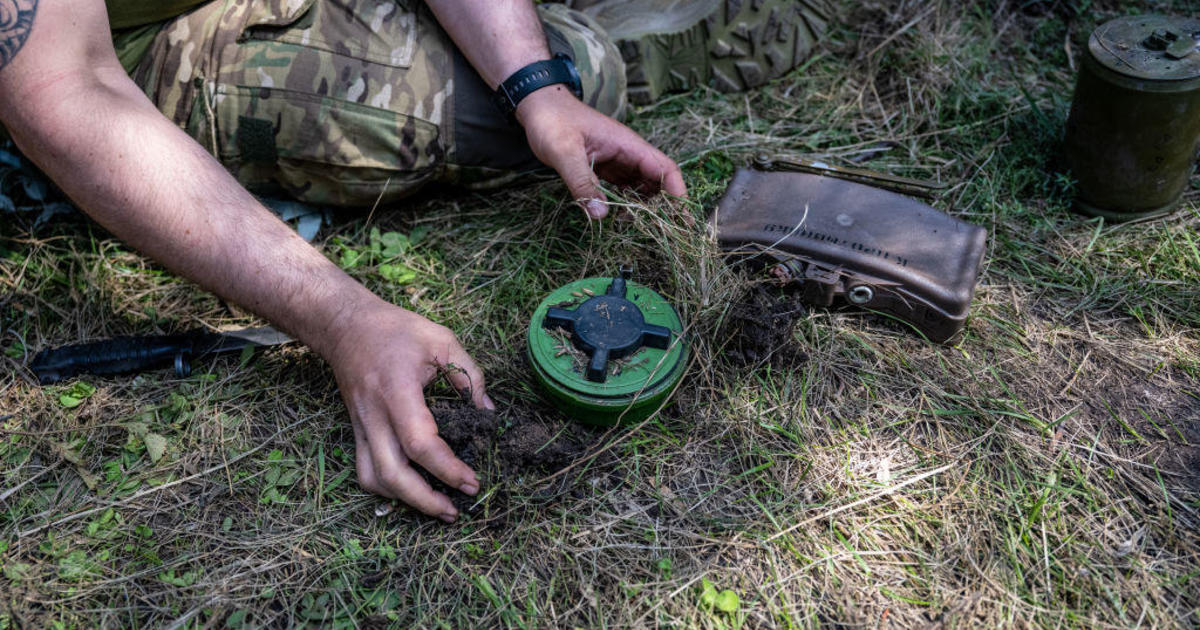The Biden administration’s decision to provide Ukraine with controversial anti-personnel mines in its ongoing conflict with Russia has sparked debate and concern among various stakeholders. The use of anti-personnel mines, also known as APLs, raises ethical and humanitarian questions due to their potential to cause harm to civilians and long-lasting effects on the environment.
The U.S. official who confirmed the provision of APLs to Ukraine stated that these weapons are specifically designed to target individuals rather than vehicles. They are intended to impede the progress of ground forces, making them a valuable asset for Ukraine in defending against Russia’s military advances in Eastern Ukraine. However, there are strict conditions attached to the use of these mines, with the Ukrainians committing to not deploy them in areas populated by their own civilians.
One key distinction between the anti-personnel mines provided by the U.S. and those used by Russia is their “non-persistent” nature. This means that the U.S.-supplied mines become inert after a set period, typically between four hours and two weeks. They are electrically fused and require battery power to detonate, ensuring that they will not pose a threat once the battery runs out.
The timing of this decision is significant, as it coincides with the 1,000th day since Russia’s invasion of Ukraine. President Biden’s lifting of restrictions on Ukraine’s use of U.S. weapons to conduct strikes inside Russia underscores the escalating nature of the conflict and the increasing involvement of external powers in the region. Reports confirm that U.S.-supplied ATACMS missiles were deployed on targets within Russia, marking a significant escalation in the conflict.
Ukraine has been heavily impacted by landmines since Russia’s invasion in 2022, with the country facing a significant landmine crisis. APLs, often disguised under innocuous names such as “butterfly” or “petal” mines, are scattered across the territory, posing a threat to civilians and military personnel alike. The indiscriminate deployment of these mines has led to long-term consequences, with some remaining hidden for years before resurfacing in populated areas.
The international community has taken steps to address the issue of anti-personnel mines through the Mine Ban Treaty, which prohibits their use. However, not all countries have signed onto this treaty, including Russia and the U.S. The U.S.’s shifting policy on APLs, from a ban under the Obama administration to a reinstatement under President Biden with exceptions for specific scenarios, reflects the complexities of balancing military strategy with humanitarian concerns.
The decision to provide Ukraine with APLs has drawn criticism from humanitarian organizations and advocates who warn of the risks posed by these weapons. Pete Smith, the Ukraine program manager for the HALO Trust, highlighted the indiscriminate nature of APLs and their long-term impact on communities. The use of such weapons raises questions about the ethical implications of supporting a conflict that could result in civilian casualties and environmental damage.
As the conflict in Ukraine continues to escalate, the role of external actors, including the U.S., in providing military support raises concerns about the potential for further violence and instability in the region. The decision to supply APLs to Ukraine represents a strategic move to counter Russian aggression but also underscores the complex and multifaceted nature of modern warfare.
In conclusion, the provision of anti-personnel mines to Ukraine by the Biden administration underscores the challenges and dilemmas faced in addressing conflicts and security threats in the modern world. While these weapons may offer a tactical advantage in the short term, their long-term consequences and impact on civilians raise important ethical and humanitarian concerns. As the conflict in Ukraine unfolds, it is essential for all parties involved to consider the broader implications of their actions and prioritize the protection of civilian lives and the preservation of peace and stability in the region.









